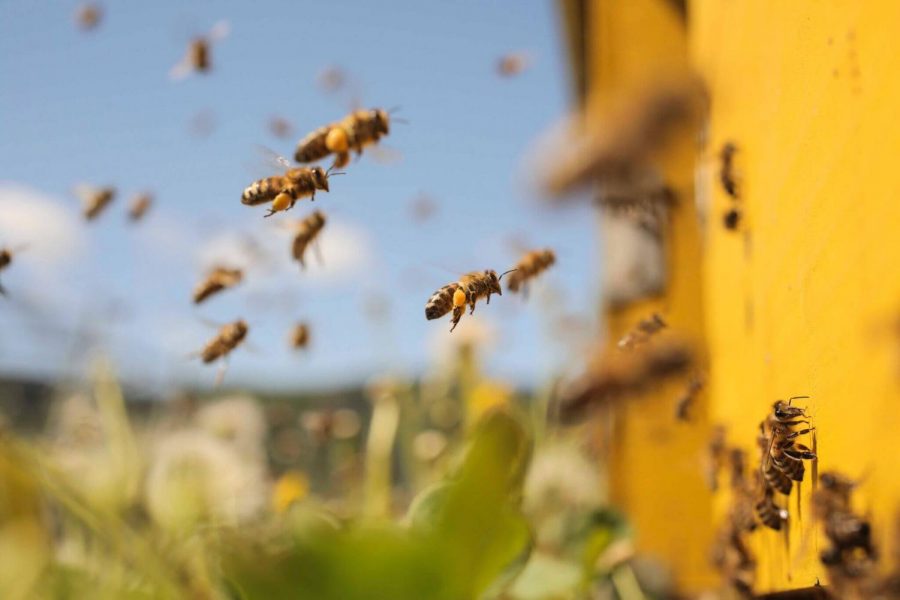If Bees Go Down, We Do Too
May 17, 2019
For the past six years, New Jersey beekeepers have lost over 40% of their colonies each winter, NorthJersey.com said.
These numbers spiked up to a 53% loss in 2016.
This loss is twice the number considered tolerable by the state. The drastic decline is caused by the harmful pesticides corporate chemical companies are using to preserve crops, said Environment New Jersey (ENJ). Chemicals that these companies use are over 6,000 times stronger than DDT. According to ENJ, not only do these companies use these pesticides, but have also asked federal regulators for permission to use 400 times the current legal limit. Some companies such as Home Depot and BJ’s are avoiding these pesticides and working to keep a bee-safe environment.
The decline is concerning people for multiple reasons. Honeylove.org states that bees not only pollinate 80% of the worlds wild plants, but also provide humans with one out of every three bites of food they eat. The money made off of the crops bees pollinate amounts to $15 billion.
According to an article posted in upperdeerfield.com, three laws were signed to protect New Jersey’s official insect. The legislation was sponsored by Senator Steven Oroho and unanimously passed in the Senate and Assembly.
A-1294 extends “Right to Farm” protections to commercial beekeepers. Nuisance complaints against beekeepers would be seen by a county agricultural board rather than a municipal court. This would save money and the board would be better educated regarding beekeeping issues.
A-1295 allows the state to regulate beekeeping activities in New Jersey. The state could give municipalities a role in managing local regulatory authority. Municipalities are prevented from making ordinances to ban beekeeping.
A-1296 is the penalty for destroying manmade bee hives. A person that intentionally destroys a bee hive can be fined up to $500.
“The honey bee is a critical pollinator and responsible for one-third of the food we consume, contributing millions to our state’s economy,” Oroho said. “We couldn’t be the ‘Garden State’ without the honey bee.”
Former New Jersey Governor Chris Christie signed legislation to protect honey bees from exposure to pesticides in January 2018. In an article posted on uspirg.org, people who spray pesticides must notify beekeepers when they are spraying within three miles of a registered beehive.
Assembly Bill A-3400 requires the New Jersey Department of Environmental Protection to set up training seminars to highlight the effects of pesticides on bees.
Steps are being taken by state government officials to combat the declining numbers of the honey bee thanks in part to new research. Laws are being passed unanimously to take this threat seriously. Big businesses like Home Depot and BJ’s are switching to a more environmentally friendly approach to pesticides. The cause of declining bees is due to human actions and they can only be saved if reverse our harmful actions.
